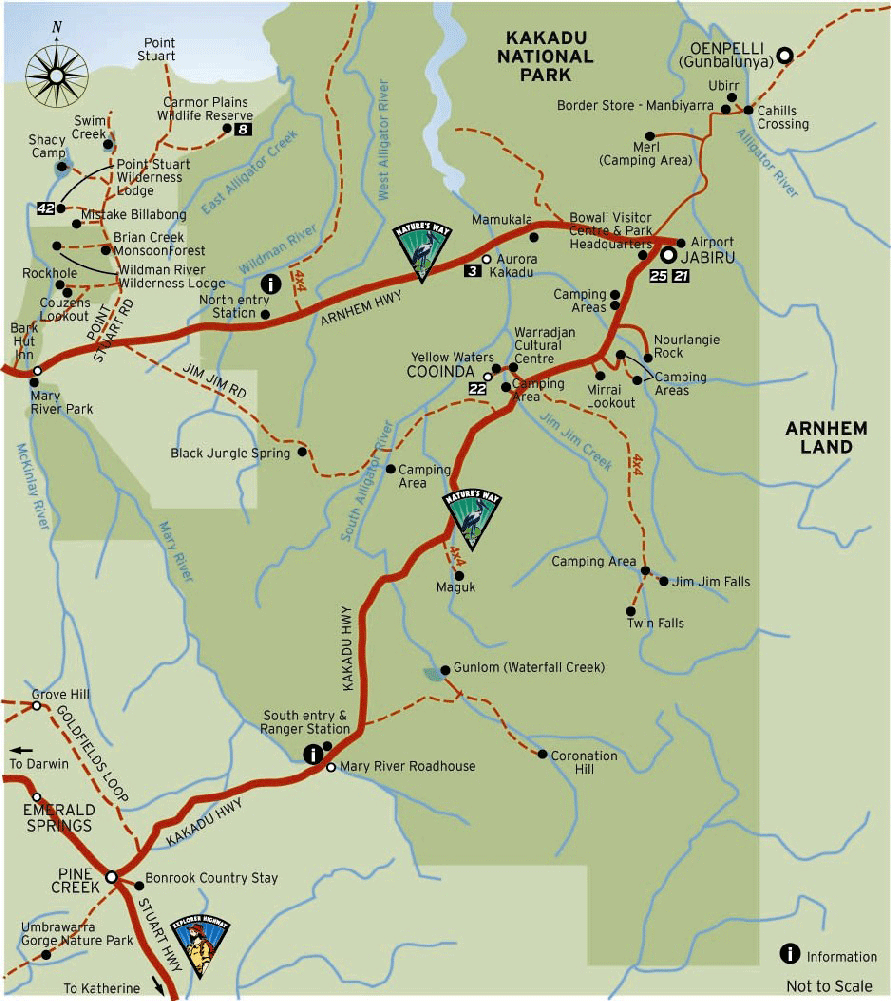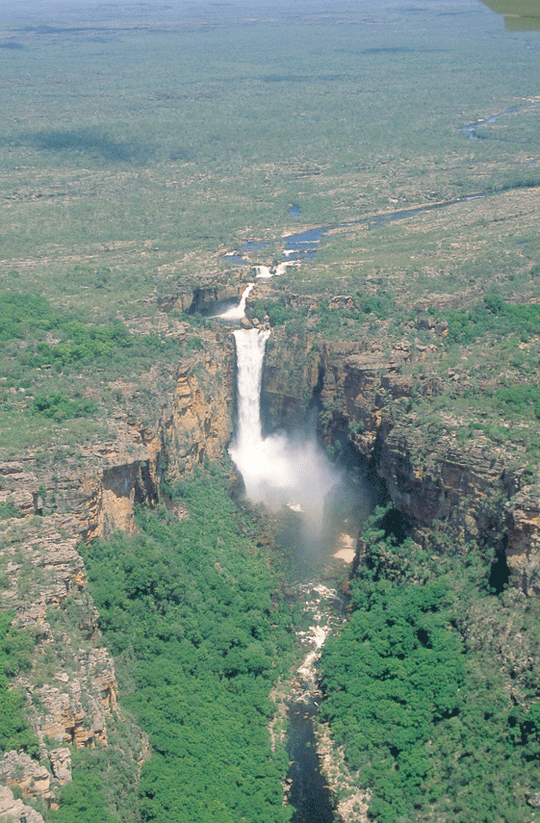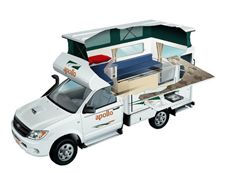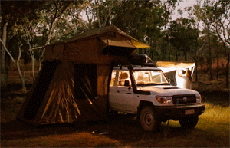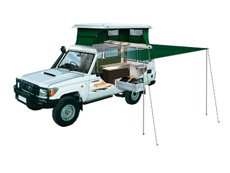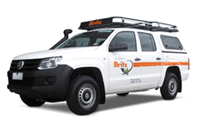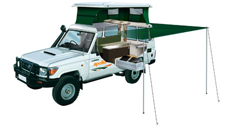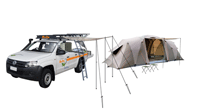About Jim Jim Falls in Kakadu Australia and Jim Jim Gorge
walk
Jim Jim Falls in Kakadu Australia
Visiting Jim Jim Gorge in Kakadu National Park, Northern
Territory Australia.
Jim Jim Falls - On the Kakadu Highway past Cooinda at the south
end of Kakadu National Park to Jim Jim and Twin Falls. (Side trip
of 130km return). From the north end of the park turn east off
the Kakadu Highway 43km south of the Bowali Centre, this is only
a 4WD access road.
A just under 2km return walk through a monsoon forest and over
small and larger boulders will take you to a deep plunge pool
surrounded by ancient, 150-metre high cliffs where the falls pound
the bottom druring the Tropical Summer also known as the Green
or Wet Seasons usually from late November to March. Though as
season change it's unpredictable.
For the latest up-to-date details, contact the Bowali Visitor
Centre on +61 (0) 8 8938 1121. Important to note: During
the dry season July till October - Jim Jim Falls ceases to flow.
Jim Jim Falls Area - Road Access
Access to the Jim Jim Falls area is by 4WD only. Turn
east off the Kakadu Highway 43km south of the Bowali Centre. Engage
4WD and travel 50 km along the Jim Jim Falls access road
to reach the Garnamarr Campground. Jim Jim Falls car park is an
additional 15 km along the access road.
Please note that the information in this document may not necessarily
provide the latest details. During the dry season written road
reports may be provided on a weekly basis as road conditions are
less variable and road reports are not loaded onto the web on
weekends or public holidays. For the latest up-to-date details,
contact the Bowali Visitor Centre on 08 8938 1121.
Visiting Jim Jim Falls Area in Kakadu National Park
Where to stay: Garnamarr Campground (dry season only,
4WD)
The Garnamarr Campground caters for about 200 people and is located
beside the Jim Jim Falls access road about 50km from the Kakadu
Highway. Caravans are not recommended and trailers must be left
at a designated area near the campground and must not be taken
to the falls. Showers, toilets and drinking water are available.
Garnamarr Campground Camping fees
A campground manager will collect the camping fee of $5.40
(known season's prices) per adult per night (over 16 years of
age). Please have correct change as eftpos facilities are not
available. See current Camping fees and permits are at this external
sublink: http://www.environment.gov.au/
There is no booking system for the campsite. Places are allocated
on a 'first come, first served' basis. It is advisable
tocontact the Bowali Visitor Centre to check on vacancies before
driving there.
Communal concrete fire rings are provided at the campground.
Firewood must be collected on the way to the campground, not within
the immediate area of the campground. Parks Australia and traditional
owners encourage minimal use of firewood and the use of gas stoves
as an alternative energy source for cooking.
The old camping area was converted into a day use area, providing
picnic tables and basic toilet facilities. This area is also the
starting point for the Budjmi Lookout walk. Please do not enter
the areas that are being revegetated.
A gate has been erected on the falls side of the Garnamarr Campground
which is locked from 8.30pm to 6.30 am for the safety of visitors.
We ask that you ensure that you leave the falls area in time to
be at Garnamarr before the gates are locked at 8.30 pm.
Rangers present regular free slide shows and talks at the campground.
Garnamarr - Large Camping Facilities:
Garrnamarr campground (dry season only, 4WD)
This campground caters for up to 200 people.
Facilities include showers and toilets, and there is drinking
water available. The campground is locked from 8.30 pm to 6.30
am for visitor safety.
Category: 1
Cost: $10 per adult per night - Under 16 years free
The cost will vary please see the parks link below for current
pricing.
Facilities:
Water
Shower
Car park
Picnic Area
Public Toilet
Jim Jim Gorge Walk
Jim Jim Falls - On the Kakadu Highway down Cooinda at the south
end of Kakadu National Park to Jim Jim and Twin Falls. (Side trip
of 130km return).
From the north end of the park turn east off the Kakadu Highway
43km south of the Bowali Centre. this is only a 4WD access road.
A just under 2km return walk through a monsoon forest and over
small and larger boulders will take you to a deep plunge pool
surrounded by ancient, 150-metre high cliffs where the falls pound
the bottom druring the Tropical Summer also known as the Green
or Wet Seasons usually from late November to March.
As season may change access may be unpredictable. Jim Jim Gorge
Track is an icon of the region and must do for the fit and adventureous.
For the latest up-to-date details, contact the Bowali Visitor
Centre on +61 (0) 8 8938 1121. Important to note: During
the dry season July till October - Jim Jim Falls ceases to flow.
From the carpark edge you see the sign below right. Here it
says
- Baark Malam Walking Track - 200 metres (this meant the track
starts in 200m from this sign)
- Gorge Viewing Area - 400 metres
- Jim Jim Falls - 900 metre
Plateau above Jim Jim Falls - Barrk Malam walk. A very
steep marked walking route leads to the plateau above Jim Jim
Falls. This walk is suitable only for very fit people, who can
manage a very steep climb in hot conditions.
Allow 4 to 6 hours for this walk and carry plenty
of water. It is advisable to start in the cooler hours of the
morning. Wear good walking shoes and appropriate clothing.
From the Baark Malam turn off sign it stated to get more
difficult as you see. We went forward here to the Gorge Viewing
Area a further 200 metres on.
| Jim Jim Falls Plunge Pool and Barrk Malam
walk (dry season only, 4WD Only) |
| Where: |
Turn east off the Kakadu Highway
43km south of the Bowali Centre. Engage 4WD, travel 65km along
the Jim Jim Falls access road. Allow 2 hours one way travelling
time on the Jim Jim Falls access road, plus 1 to 2 hours to
walk to the plunge pool and return to the car park. |
| Features: |
Jim Jim Falls Plunge Pool
- A 2km return walk through monsoon forest and over boulders
will take you to a deep plunge pool surrounded by spectacular,
150-metre high cliffs.
- This walk is suitable for people who are fit and can
manage uneven terrain (large boulders, often slippery).
- Allow 1 to 2 hours for this walk.
- Visitors who choose to swim at the Jim Jim Falls plunge
pool do so at their own risk. Please note the advice on
our visitor safety page regarding crocodiles and all crocodile
warning signs on site.
- Do not enter the water downstream of the Jim Jim
Falls plunge pool. Estuarine crocodiles may be present.
Plateau above Jim Jim Falls - Barrk Malam walk
- A very steep marked walking route leads to the plateau
above Jim Jim Falls.
- This walk is suitable only for very fit people, who
can manage a very steep climb in hot conditions.
- Allow 4 to 6 hours for this walk and carry plenty of
water. It is advisable to start in the cooler hours of
the morning. Wear good walking shoes and appropriate clothing.
|
| Important to note: During the dry season
Jim Jim Falls ceases to flow. |
| Twin Falls Gorge (dry season only, 4WD with
snorkel required) |
| Where: |
Access to Twin Falls is via the Jim Jim Falls Road. Turn
east off the Kakadu Highway 43km south of the Bowali Centre.
Engage 4WD and travel 65km along the Jim Jim Falls road.
Turn right prior to reaching the Jim Jim Falls car park
and travel a further 10km to Twin Falls, crossing Jim Jim
creek on the way. A 4WD vehicle with a snorkel is required
for this crossing. Allow 2.5 hours one way. Check the road
conditions before attempting this journey.
|
| Features: |
Twin Falls Gorge
- Access up Twin Falls gorge is by boat shuttle service,
a walking track over boulders and sand, and a boardwalk.
- This walk is suitable for people who are fit and can
manage uneven terrain (large boulders, often slippery
with sand).
- Allow about 2 hours return for the boat trip and walk.
- The boat shuttle service charges a fee of $12.50 per
person, including the return journey (inclusive of GST).
Children under 16 years travel free. The service departs
at least every half hour (depending on demand) from 7.30am.
The last boat service departs at 4.30pm and returns to
the carpark end of the gorge at 6pm.
- DO NOT ENTER THE WATER IN TWIN FALLS GORGE. ESTUARINE
CROCODILES MAY BE PRESENT.
Plateau above Twin Falls
- The track which leads the plateau above the falls follows
a steep, 6km return, marked walking route. There are good
views on the way and pools can be found along the creek
above the falls, visitors are not allowed to swim.
- This walk is suitable for fit people who can manage
a steep climb in hot conditions.
- Allow 3 to 4 hours for this walk and carry plenty of
water. It is advisable to start in the cooler hours of
the morning. Wear good walking shoes and appropriate clothing.
- Please obey all warning signs along the way and keep
a safe distance from the edge above the falls.
Twin Falls Area in Kakadu National Park
In the past you had to swim or use
a lilo to access the Falls gorge. Now you must take the
boat shuttle service transfer approx $12.50. Apparently
ou can get tickets of the campground manager at Garnamarr.
You aren't allowed to swim at Twin
Falls plunge pool and beach (Bowali Visitors centre 11.10.2010
update). Not in the gorge and not in the plunge pool below
the falls.
The boat shuttle takes you through
the gorge and drops you near the falls. From here you have
to walk for like two minutes, over some rocks and then over
a boardwalk. You end up at a big pool with a sandy beach
at the bottom of the falls. You end up at a big pool with
a sandy beach at the bottom of the falls.
Important: Visitor
Safety
Important: Before
trying the Twin Falls crossing check with Bowali Visitor
Centre for up to date information.
|
| Note: Saltwater (estuarine) crocodiles
are known to exist in Twin Falls Gorge from time to time.
Please note the advice on swimming on our visitor safety page
and do not enter the water in Twin Falls Gorge. |
Parks & Wildlife Commission of the Northern
Territory
Head Office - Goyder Centre 25 Chung Wah Tce Palmerston, NT 0830
PO Box 496 Palmerston NT 0831
Ph: +61 (0) 8 8999 5511
Crocodile Safety Information
Northern Australia is crocodile country. Therefore it is important
to put awareness of crocodiles and safety at the top of your priority
list when living in, working in or simply visiting crocodile habitat.
Living with crocodiles is not difficult so long as you bear the
following points in mind.
Always be aware that crocodiles
may be present anywhere that there is water.
Unless there is clear signage that
it is safe to swim, assume that crocodiles may be present.
Warning signs are there for your
benefit! Ignoring them is foolish.
Always check with local authorities
and rangers whether an area is likely to contain crocodiles.
If in doubt, always swim in designated
swimming areas only.
If there's no sign, don't go swimming.
A spotlight or LED head-torch is
strongly recommended at night so that any eyeshines can be seen,
but a lack of eyeshines does not mean that it's safe to swim -
crocodiles may be underwater.
© We suggest you also visit a website called
http://www.nt.gov.au/becrocwise
Kakadu General Information
There are many interesting places to discover in the area, but
some things to remember too:
Saltwater crocodiles inhabit the South Alligator River and are
extremely dangerous. Do not risk your life, keep away from the
waters edge.
Freshwater crocodiles inhabit the area. Do not approach or interfere
with them.
Do not jump off rocks or cliffs as there are unseen dangers
and accidents have resulted in death.
Jim Jim Plunge Pool can be hazardous as the shallow water suddenly
becomes deep.
Use the toilets provided.
Observe and enjoy the native animals, but do not disturb or
feed them. Fishing is prohibited.
Use fuel stoves in preference to open fires.
If lighting open fires, collect firewood along the access road
into Gunlom and use it sparingly. Use the fireplaces provided,
attend fires at all times and extinguish them before you leave.
Use the recycling facilities supplied and place all other rubbish
in the bins. Remember, cigarette butts, orange peel and tissues
are rubbish too.
Sunscreen and insect repellent pollute waterways. Wear a long-sleeved
shirt and hat as alternative protection.
The mornings and evenings are the best times to walk and observe
wildlife. For your own comfort and safety please keep to the marked
tracks, wear a hat and sturdy shoes, and carry plenty of drinking
water.
Kakadu National Park - Seasons
But Australia's Kakadu sees seasons of varied extremes -- so
varied, in fact, that the park's longtime aboriginal inhabitants
have divided the year into six distinct seasons.
Kakadu Seasons - Gunumeleng Pre-Monsoon Storm Season - Gunumeleng,
from mid-October to late December, may in fact last from a few
weeks to several months.
Kakadu Seasons - Gudjewg - Monsoon Season - Gudjewg, from January
to March, can be described as the 'true' wet season.
Kakadu Seasons - Banggereng - Knock 'em down storm Season -
Banggerreng, in April, is the season when the rain clouds have
dispersed and clear skies prevail.
Kakadu Seasons - Yegge - Cooler but still humid Season - Yegge,
from May to mid-June, is relatively cool with low humidity.
Kakadu Seasons - Wurrgeng - Cold Weather Season - Wurrgeng,
from mid-June to mid-August, is the 'cold weather' time; humidity
is low, daytime temperatures are around 30°C and night-time temperatures
are around 17°C.
Kakadu Seasons - Gurrung - Hot Dry Weather - Gurrung, from mid-August
to mid-October, is hot and dry.
Seasons
The dry season which is approximatley which
is classed generally as May - October each year.Though in current
year the wet has not set in till late December or January and
then finishes mid April.
Access To Jim Jim Gorge
The dry season which is approximatley which is classed generally
as late June - October/November each year. We
recommend you contact the offical Bowali Vistors Centre for more
information.
Kakadu National Park - Swimming
Are there certain times of the year that I cant swim?
The seasonality of waterholes across the Northern Territory depend
on the amount of rain throughout the year. NT Parks and Wildlife
monitor water levels and erect signs advising visitors when it
is safe to swim. Always obey sign posts. Check the latest access
report on the web.
How can you identify if a water-hole is safe to swim in?
Salt and freshwater crocodiles are found in most Top End billabongs
and rivers, and are occasionally seen on remote beaches. The accessible
rivers and billabongs are generally sign-posted if saltwater crocodiles
are known to inhabit the area, but if you are not sure, dont
swim. Swim only where recommended and always observe and read
the crocodile warning signs.
Arent swimming spots hard to get to or only acesible as part
of a tour?
All the swimming spots in Darwin, Litchfield National Park, Katherine,
Mataranka and the MacDonnell Ranges are accessible by self-drive.
A few locations are only accessible by four wheel-drive, such
as Butterfly Gorge Nature Park and Tjaynera Falls in Litchfield
National Park. Tour operators with swimming options include Adventure
Tours Australia, Australian Pacific Touring, Connections Safaris,
Odyssey Tours and Safaris and many more'.
Resources
Links
parksandwildlife.nt.gov.au/
environment.gov.au/parks/
facebook.com/RoadReportNT
roadreport.nt.gov.au/
ntlis.nt.gov.au/roadreport/
toiletmap.gov.au/
travelnt.com/
kakadu.com.au/access
©
source | courtesy of kakadunationalparkaustralia.com
©
source | courtesy of litchfieldnationalpark.com
©
source | courtesy of tropicaldarwin.com
©
source | courtesy of australia4tours.com
©
source | courtesy of darwin4tours.com
|
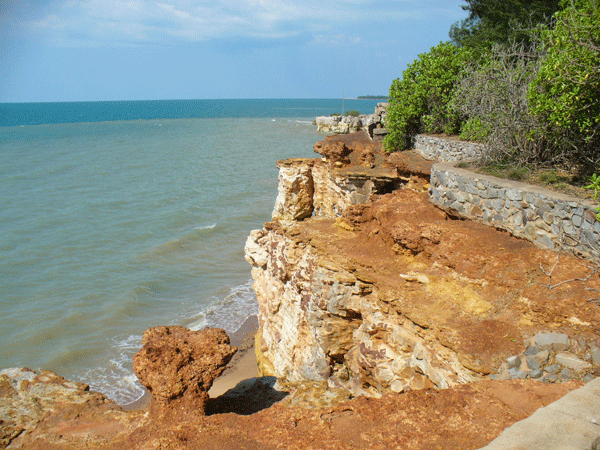
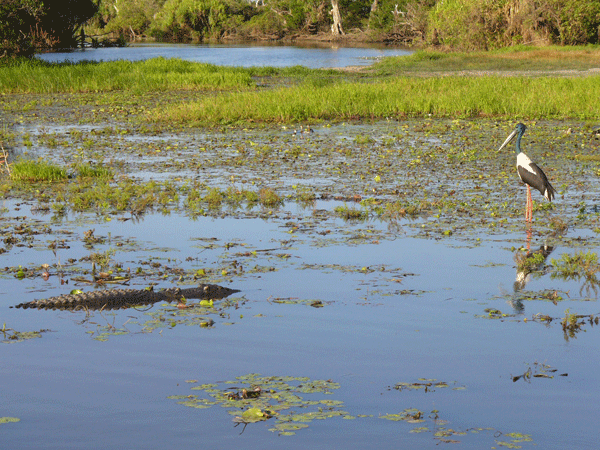
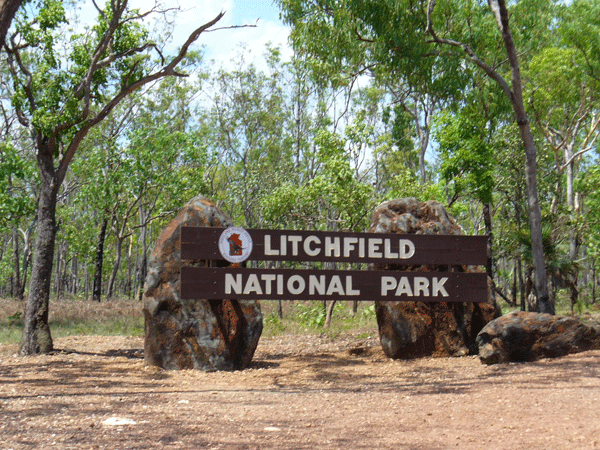
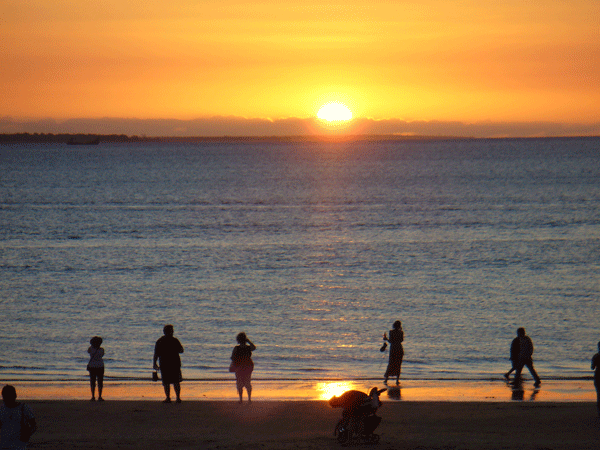
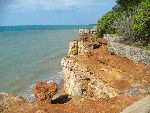
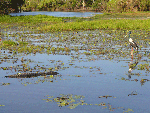
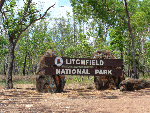
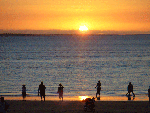
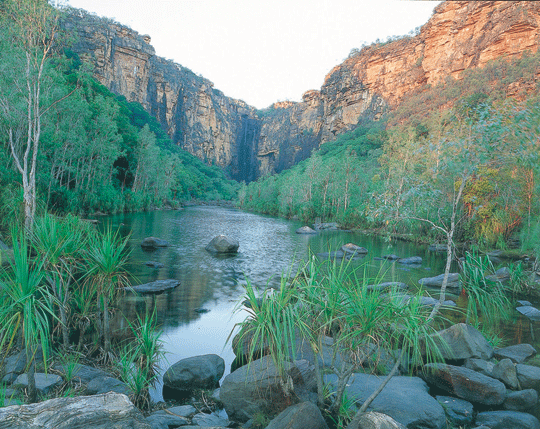 ©
©